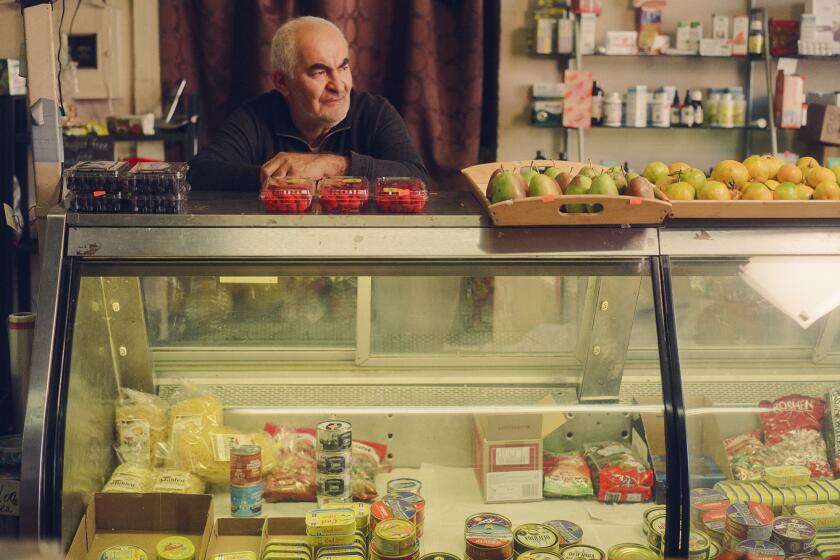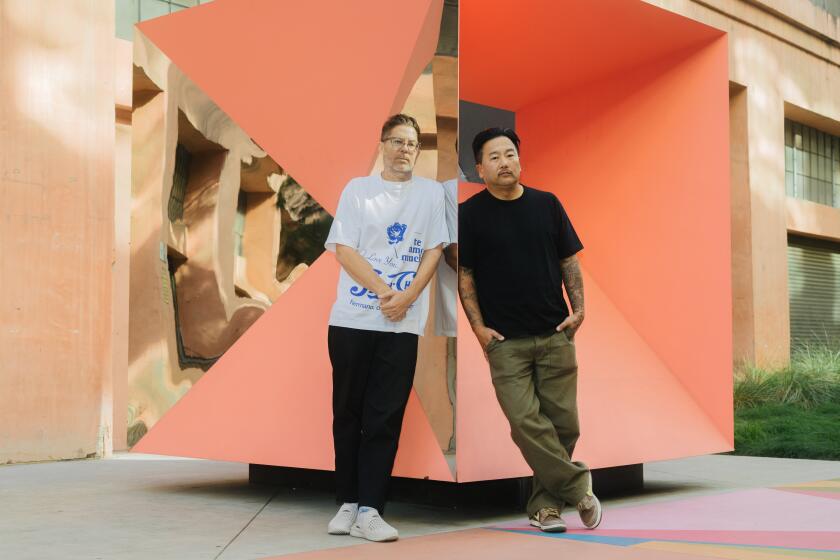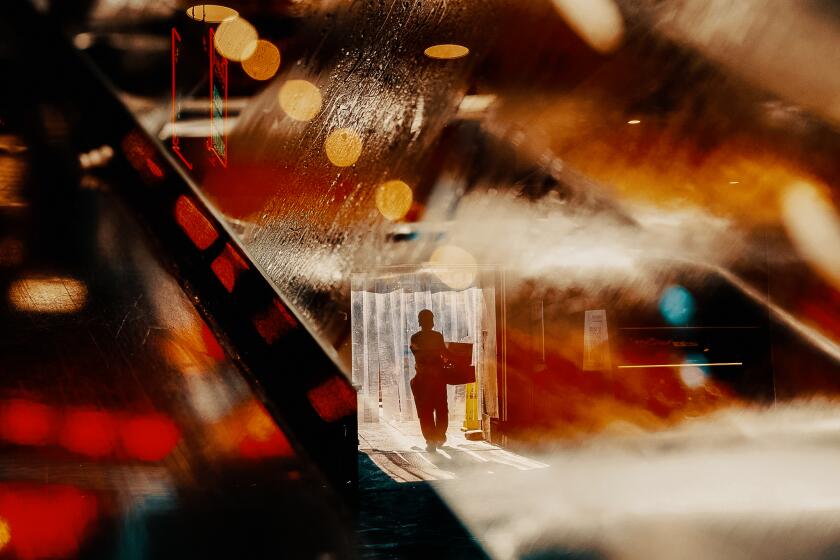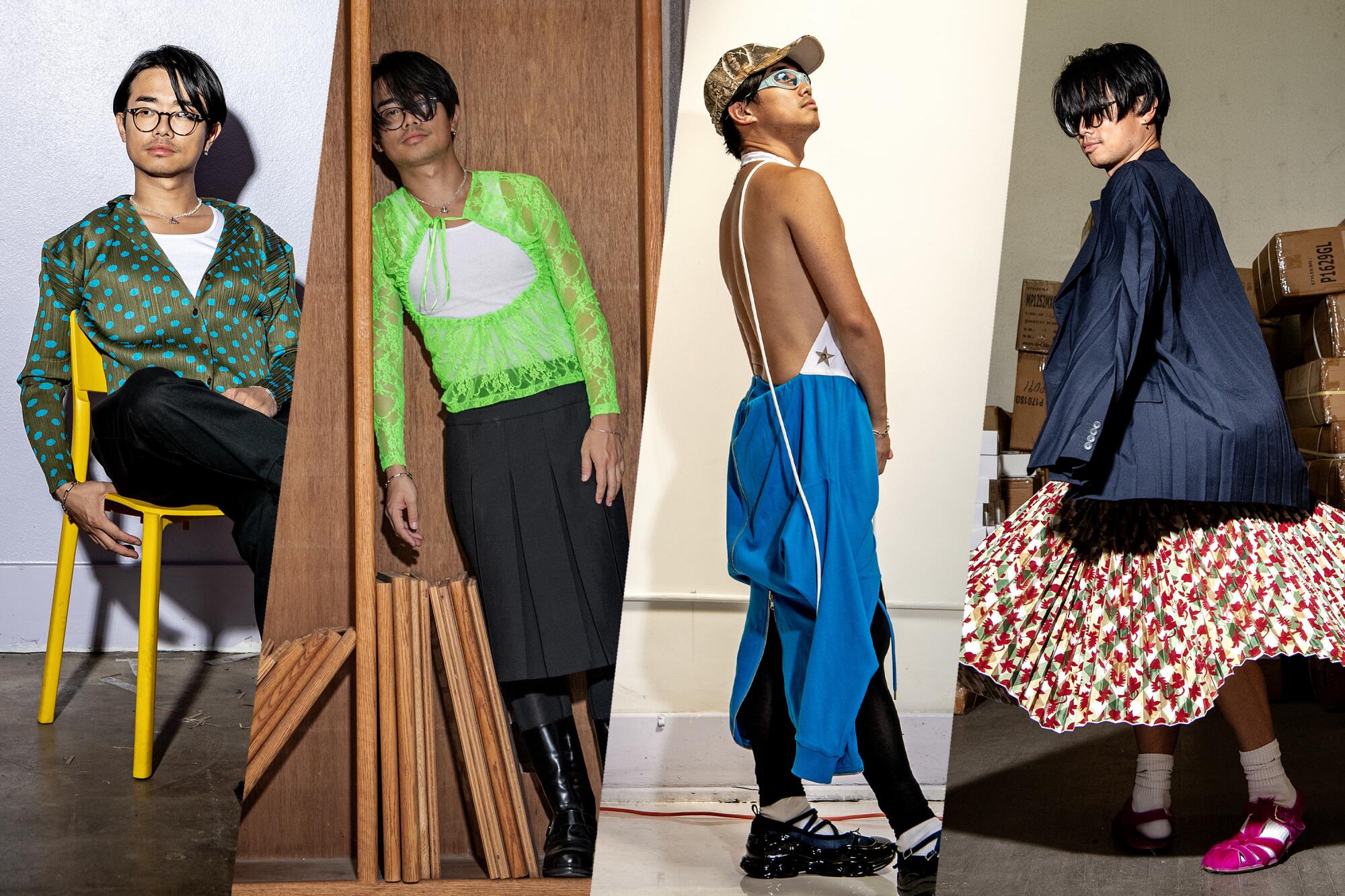
This story is part of Image Issue 15, âDiaspora,â a fantastic voyage through the mecca of food, from Hollywood haunts to mall food courts to L.A. staples. Read the whole issue here.
âNot gonna lie, sometimes I struggle with how I want to look. Sometimes I feel like Iâm trying too hard,â stylist Shaojun Chen says.
Weâre sitting in a downtown warehouse filled with boxes of sunglasses â the future bricks-and-mortar of Bonnie Clyde, an eyewear brand owned by one of Chenâs friends, Jon Yuan.
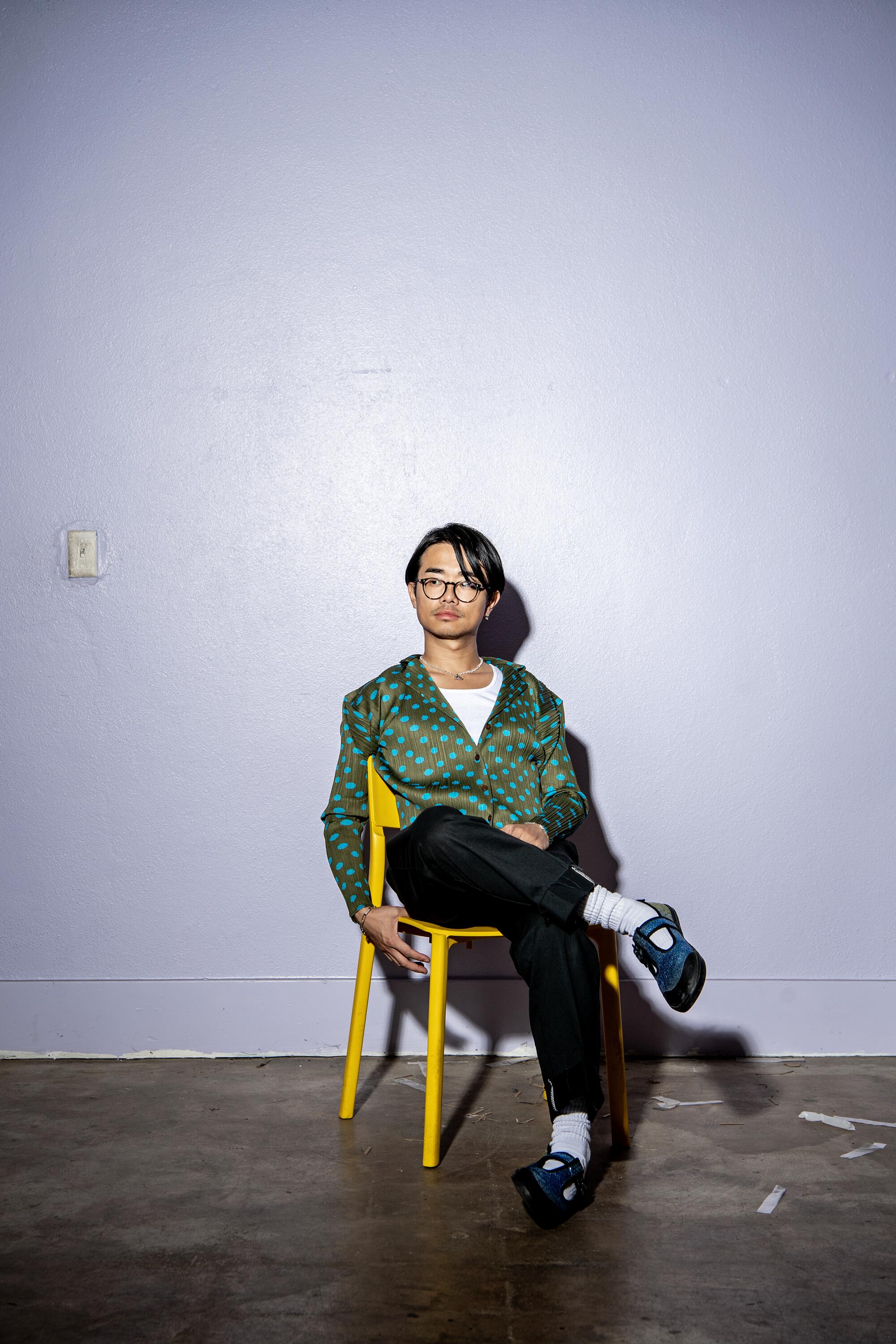
âIâm still figuring it out, trying to find a good balance of whatâs my intention behind this? Before, I didnât know myself that well,â Chen adds. âBut now I know more and more about myself ⌠I just want to tell people through my styling that thereâs no rule. If thereâs a rule, you need to break it.â
When he was 20, Chen made a life shift. Heâd been studying chemistry in China â where he was born and raised, between Shaanxi province and Zhenjiang â when he realized that he wanted to pursue something creative. He wasnât sure what that something was yet. So he turned to California for answers, moving to L.A. in 2011 to study fashion design at Santa Monica College and then, briefly, at the Otis College of Art and Design.
On the nostalgia and subversive possibilities of taking up space in the pitstop of late-capitalist consumption in America.
He started off doing e-commerce styling at Nordstrom, which despite proving somewhat âboring,â gave him the opportunity to meet photographers and models and start conducting test shoots. One Chinese photographer in particular changed things for him: Jumbo Tsui. âHe came to L.A. to work, and I reached out to him, and he said I can come and assist the stylists that he was working with,â Chen remembers. âThat opened a lot of doors for me.â
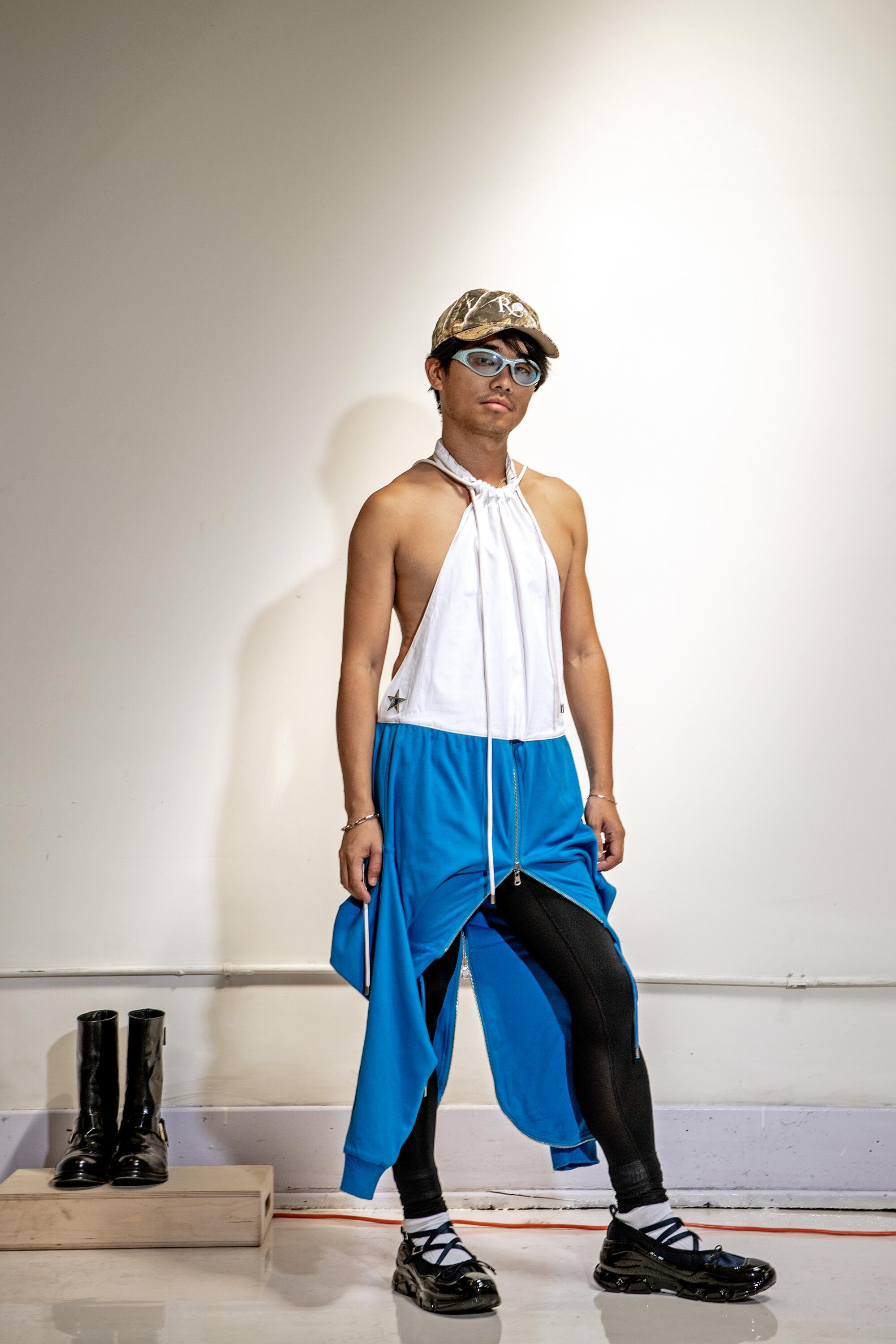
Since 2018, Chen has been styling full time, and he has tried to prioritize working with editorial outlets based out of China, though the nature of the geopolitical relationship between China and the U.S. has made cross-national work more complicated, to say the least. Still, magazines like Grazia China and GQ China often reach out to him to do projects. And heâs styled a handful of Chinese and Chinese American celebrities like Daniel Wu and Jesse Leigh. Youâll also find musicians in Chenâs portfolio: Hana Vu, AminĂŠ, Tame Impala.
For Chen, the journey to becoming a stylist has been about finding a sense of self. The way he sees it, to successfully style oneself and others, you have to understand who you are first.
Elisa Wouk Almino: Would you say that your upbringing and moving here has influenced the way you approach your work?
Shaojun Chen: I think itâs just the way of thinking. I can only speak for myself â just my upbringing. I was always told to be humble, not to be overly proud. Iâm always open to ideas. Iâm never closed. Iâm always trying to hear better ways of thinking.
EWA: And what about the way you see style?
SC: Before I really got into the industry, I went through a phase of just following the trends, and kind of going through everything to figure out what Iâm about. I just like to have fun. Fun is the most important thing. I feel the best work comes when I had fun, like the team had fun. If the atmosphere is too serious, then I just freeze.
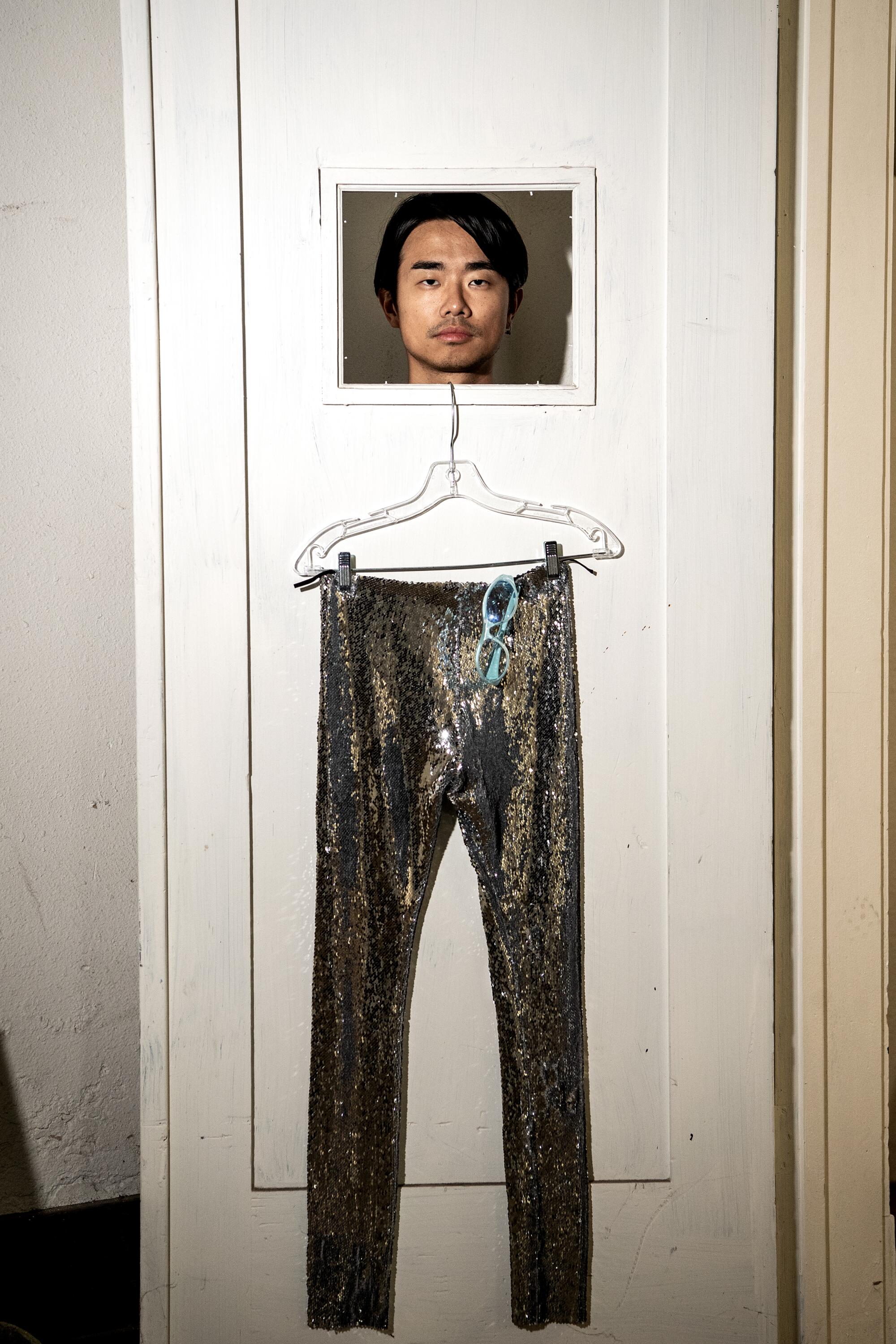
EWA: I can tell, even just based on your Instagram, that you have a sense of humor in your work.
SC: Thank you! Definitely. Humor is important. I donât know if it will sound weird, but I do not feel star-struck anymore, only if itâs a comedian. If I can meet Kristen Wiig or some other comedians⌠I would [gasps]âŚ
EWA: Do you think this sense of play comes across in your choice of clothing?
SC: Yes. I always think to throw it off. I donât want it to look perfect. I donât want it to look like itâs supposed to be like that. I want to change something about it. Why not?
EWA: Whatâs one thing you really like to have fun with?
SC: Dress like a girl. I started exploring it last year. Because I also had issues with my own gender. You know, identity. I donât really like labels. I also had problems with my feminine side, like femininity, growing up, because I was called different things. I didnât think I cared about it that much until during quarantine. I was like, âI really am suppressing it.â
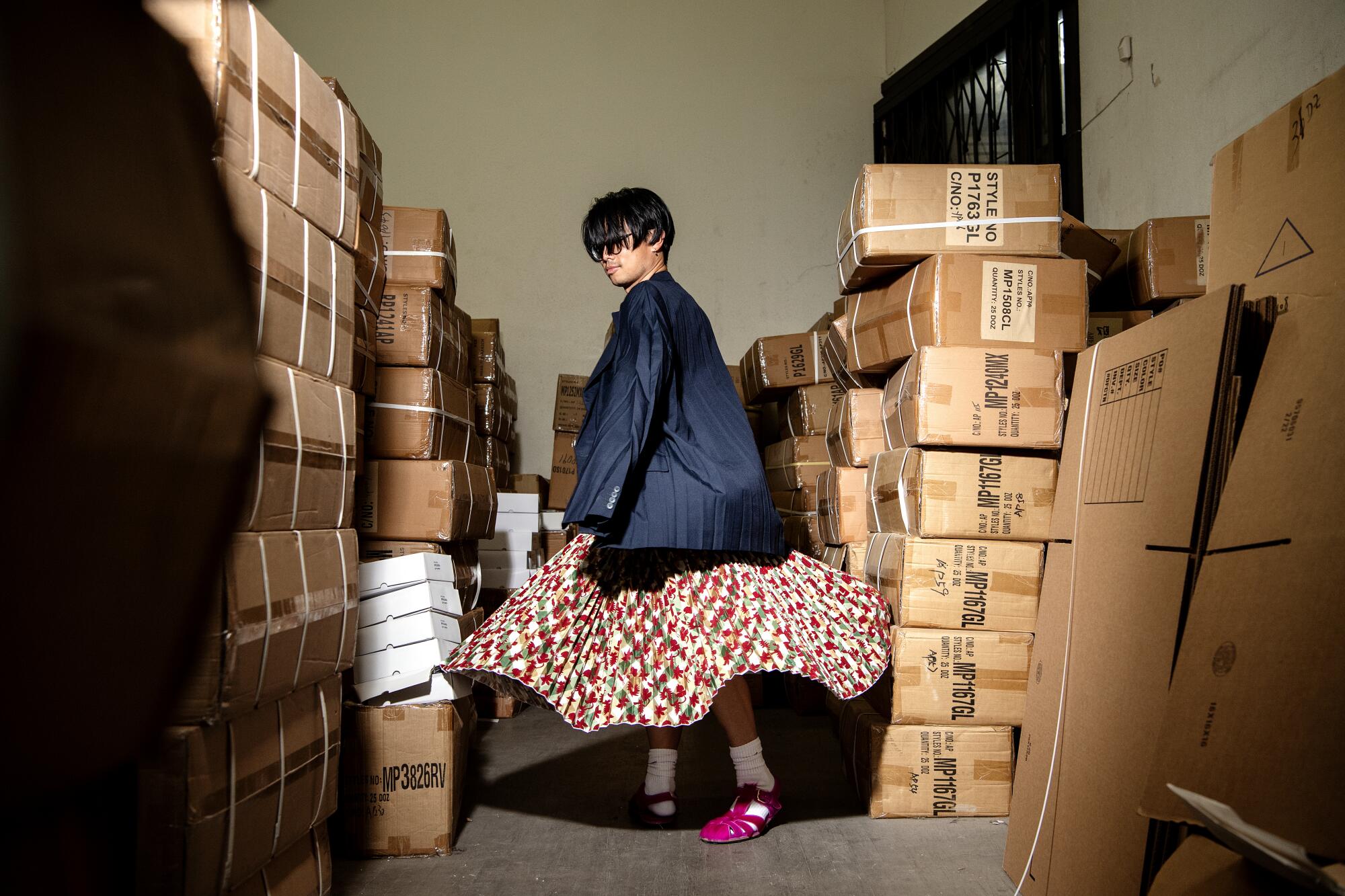
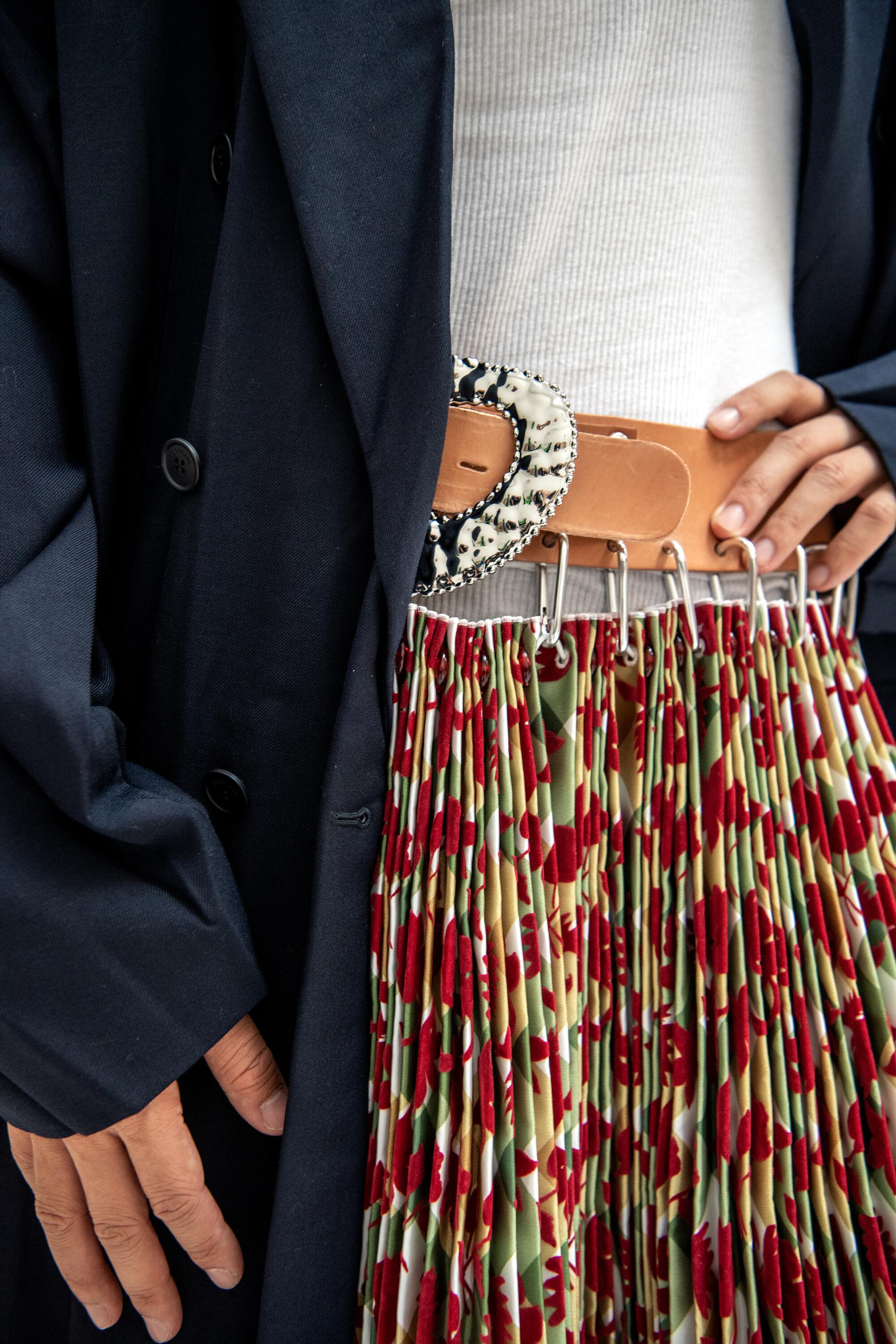
EWA: How would you describe your wardrobe in general?
SC: Youâll see a rainbow of colors. I donât like things that are overly aggressive looking. I mean, I can get into that character, but most of the time I like to wear things that make me look friendly. But youâll definitely look at me twice.
EWA: Whatâs a project youâre really proud of?
SC: A recent one was with Gaten Matarazzo, the kid in âStranger Things.â Well, heâs not a kid anymore â heâs 20. That was for Odda magazine, Korea, a cover story. It was so fun. He was very open to explore things heâs never worn. When I put him in that sequin legging, he was like, âI love this.â
EWA: Do you feel like thatâs your characteristic as a stylist, to push peopleâs limits a little bit and see where theyâll go?
SC: I donât consider it to be pushing limits. I feel like, if I see them in that, if it makes sense to me, then it will make sense.
EWA: How do you determine whether you see it? Is it an energy thing in the person? Whatâs the process?
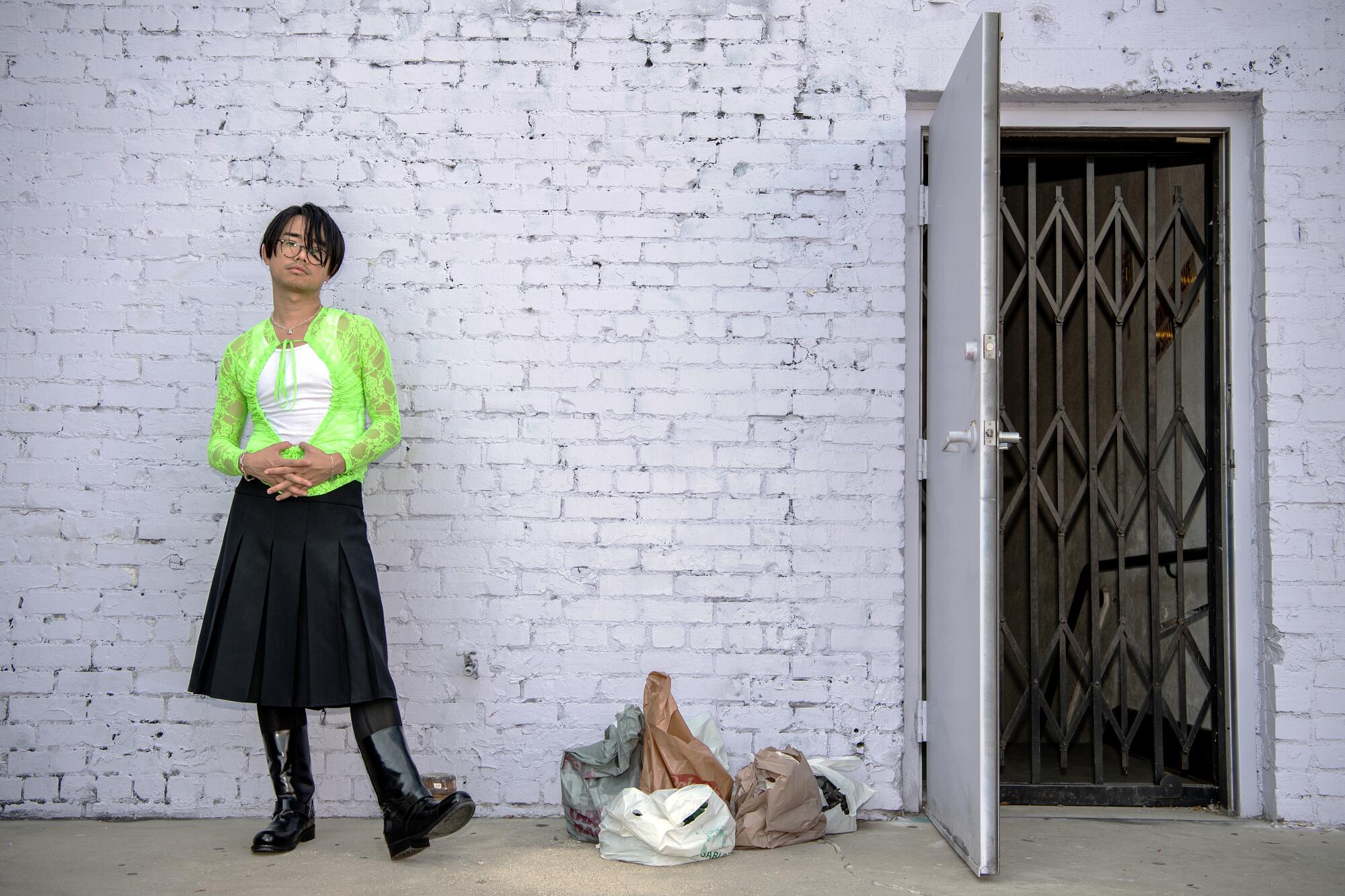
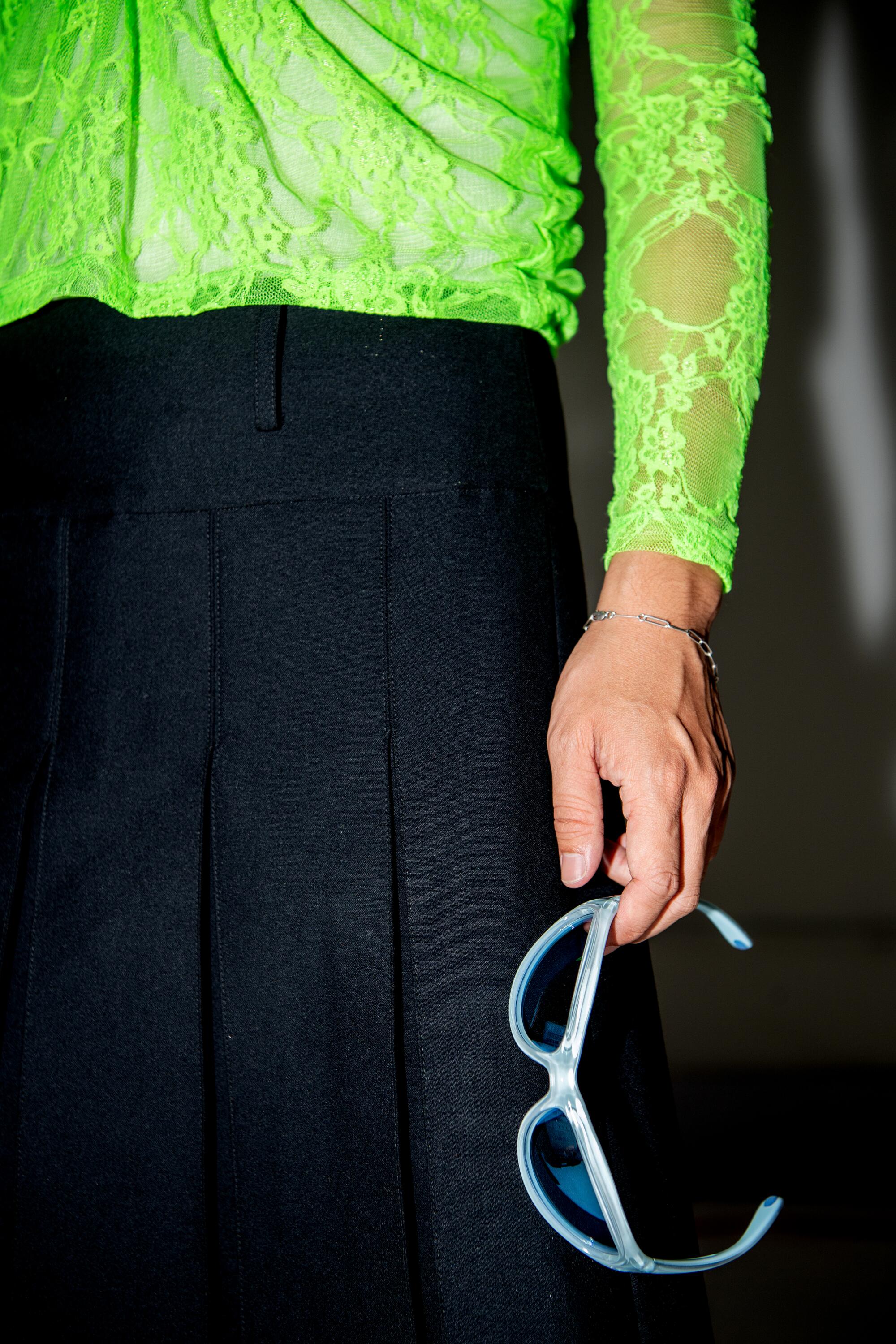
SC: I just consider the whole image. I think peopleâs egos get in the way. I think we need to understand what weâre here for: Weâre here to create beautiful images.
EWA: You donât like rules, but do you have a philosophy around how you like to style?
SC: I like to mix expensive things with cheap things. I donât want everything to look loud. I think itâs almost like sending a message. You see me wearing these sequin shoes and this Target tank top â literally, a tank top every day. I donât like wearing T-shirts. I just feel free. And these Dickies every day â itâs so dirty [laughs].
More stories from Image

